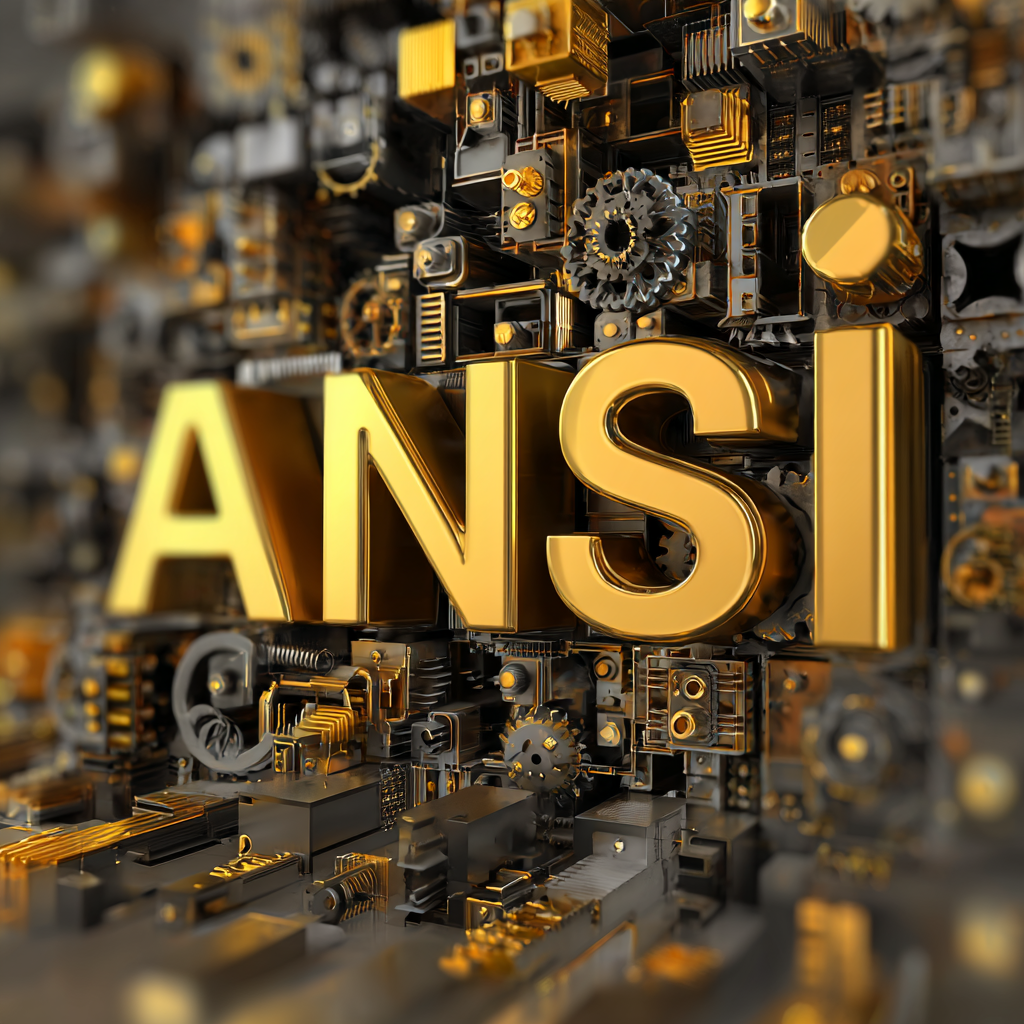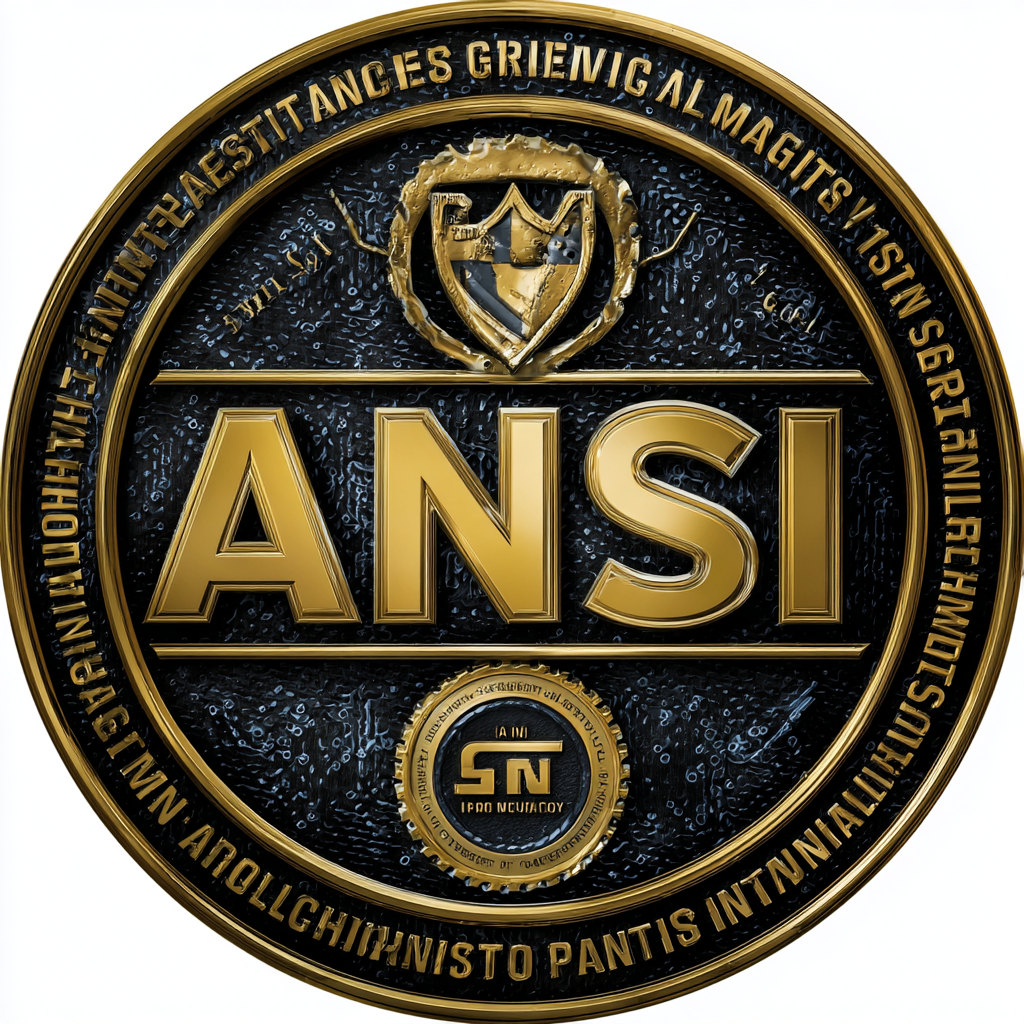Innovative Applications of Best Latest Ansi Standards in Modern Manufacturing Processes
The manufacturing landscape is evolving rapidly, driven by technological advancements and the imperative for enhanced efficiency and quality. As organizations strive to meet the demands of a dynamic market, the adoption of the Latest ANSI Standards has become crucial in optimizing manufacturing processes across various product types. According to a report by the National Institute of Standards and Technology, industries that implement these standards experience up to a 30% increase in productivity and a significant reduction in production errors. The diversity of product characteristics and their specific applicability within manufacturing workflows underscore the need for standardized protocols that ensure reliability and safety. By exploring the innovative applications of the Latest ANSI Standards, manufacturers can not only streamline operations but also foster a culture of continuous improvement and adaptability, positioning themselves competitively in an increasingly globalized economy.

The Role of ANSI Standards in Streamlining Import and Export Certification Processes
The relevance of ANSI standards in modern manufacturing is crucial, particularly in streamlining import and export certification processes. By adhering to these standards, manufacturers enhance product quality and ensure compliance with international regulations. ANSI standards provide a clear framework that simplifies the certification journey, facilitating smoother transactions across borders. This not only reduces time delays but also lowers the risk of costly errors that can arise from non-compliance.
Tip: Manufacturers should stay updated on the latest ANSI standards relevant to their industry. Regular training and updates can help businesses quickly adapt to changes and maintain compliance, ultimately benefiting their bottom line.
Moreover, using ANSI standards fosters trust with international partners by demonstrating commitment to quality and safety. This trust is vital in a competitive global market where customers increasingly prioritize reliable certification. An established adherence to these standards can give manufacturers a significant edge.
Tip: Collaborating with certification bodies early in the development process can identify potential issues beforehand, streamlining the path to compliance and minimizing disruptions.
Innovative Strategies for Implementing ANSI Standards in Manufacturing
In modern manufacturing, implementing the latest ANSI standards can significantly enhance operational efficiency and product quality. To effectively integrate these standards, manufacturers should consider adopting an innovative approach that focuses on training and collaboration. Engaging workers with workshops and training sessions can help build a comprehensive understanding of ANSI standards, enabling them to apply best practices in their daily tasks.
**Tip:** Encourage an open dialogue among teams to discuss challenges and solutions related to ANSI standard implementation. This can foster a culture of continuous improvement and innovation within the organization.
Another strategy for successfully integrating ANSI standards is through the use of technology. Digital tools and software can streamline the processes involved in compliance, making it easier for manufacturers to keep track of changes in standards and ensure adherence. Implementing automated monitoring systems can also help in maintaining consistent quality, leading to fewer errors and reduced waste.
**Tip:** Invest in smart manufacturing technologies that provide real-time insights into production processes. This enables quick adjustments and keeps operations aligned with ANSI standards, ultimately driving competitiveness in the market.
Enhancing Product Quality through ANSI Compliance in International Trade
In today's competitive landscape, adherence to ANSI standards significantly bolsters product quality, particularly in the realm of international trade. By aligning with these benchmarks, manufacturers can ensure that their products meet rigorous quality requirements, thus enhancing their global marketability. For instance, the implementation of the ISO 9000 standards has been shown to improve operational efficiency and increase customer satisfaction—key components that drive success in international markets.

Moreover, the growing emphasis on compliance is further underscored by industry reports projecting that the Testing, Inspection, and Certification (TIC) market will reach approximately $239.48 billion by 2025, emphasizing the increasing need for standardized practices in various sectors. This trend indicates that manufacturers who prioritize compliance not only enhance product quality but also align themselves with broader trade standards, fostering greater trust and collaboration across borders. As industries evolve, the integration of ANSI standards will remain vital for businesses aiming to maintain a competitive edge in the global arena.
Case Studies: ANSI Standards Transforming Modern Manufacturing Practices
In the realm of modern manufacturing, ANSI standards play a pivotal role in streamlining processes and enhancing product quality. Various case studies illustrate how these standards have been instrumental in transforming manufacturing practices across diverse industries. For instance, a prominent automotive manufacturer implemented ANSI/ISO integration to standardize their supply chain management. This adoption led to a remarkable 20% reduction in operational inefficiencies, enabling quicker production cycles while maintaining stringent quality controls.
Another notable case comes from the aerospace sector, where a leading company utilized ANSI standards to enhance safety protocols in their manufacturing processes. By following the ANSI Z535 series for safety signage and communication, they successfully mitigated workplace hazards, resulting in a significant decrease in accident rates. These real-world applications demonstrate that adopting ANSI standards not only drives efficiency but also cultivates a culture of safety and reliability in manufacturing environments, ultimately leading to improved outcomes and customer satisfaction.
Navigating Global Markets: ANSI Standards as a Key to Competitive Advantage
In today's rapidly evolving global market, adhering to ANSI standards has become a crucial element for manufacturers seeking to gain a competitive edge. The Biological Safety Cabinets (BSCs) market is projected to reach a remarkable USD 448.4 million by 2032, highlighting the increasing importance of biosafety standards driven by rising research demands. This trend underscores how aligning with established standards not only enhances product safety and efficacy but also positions manufacturers favorably in the eyes of regulators and customers alike.
As international technology standards continue to evolve amid shifting geopolitical landscapes, organizations must strategically navigate these changes. Standards for data and technology are integral to the world's digital ecosystem, influencing everything from product compatibility to interoperability. By investing in the latest ANSI standards, manufacturers can ensure their products meet global expectations, ultimately enhancing marketability and operational efficiency. This proactive approach not only mitigates risks associated with non-compliance but also leverages standardized practices to streamline processes, thereby reinforcing a strong market position in an increasingly competitive global arena.

